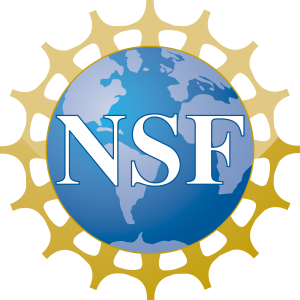 The National Science Foundation (NSF) recently announced that Amazon Web Services (AWS), Google, and Microsoft will participate in it’s new Critical Techniques, Technologies and Methodologies for Advancing Foundations and Applications of Big Data Sciences and Engineering (BIGDATA) research program.
The National Science Foundation (NSF) recently announced that Amazon Web Services (AWS), Google, and Microsoft will participate in it’s new Critical Techniques, Technologies and Methodologies for Advancing Foundations and Applications of Big Data Sciences and Engineering (BIGDATA) research program.
The three major cloud providers will supply cloud credits and resources to qualifying NSF-funded projects. This collaboration aims to combine cutting-edge, industry cloud computing resources with real data sets and assorted NSF-supported projects to advance research in big data and data science.
Proposal submissions are due March 15, 2017 through March 22, 2017 (and no later than 5 p.m. submitter’s local time on March 22nd). All those interested in submitting a proposal to the BIGDATA program should refer to the solicitation for details. All proposals that meet NSF requirements will be reviewed through NSF’s merit review process. For proposals that request cloud resources, reviewers will additionally be asked to evaluate: (1) the appropriateness of the requested use; (2) whether the specific use of cloud resources has been adequately justified through an annual usage plan; and (3) the estimate of the amount of resources needed and the corresponding resource request budget (in dollars). The requests for cloud resources should not only include resources required for the experimentation phase, but also for usage over the duration of the project (e.g., software development and testing and code debugging).
To learn more about NSF’s BIGDATA program, visit their website.
The four NSF Big Data Regional Hubs (BD Hubs), who the CCC worked with on a program for industry-academia collaboration, have also entered into a partnership with Microsoft and negotiated $3 million in Microsoft Azure cloud computing credits.
The four Hubs – Northeast, South, Midwest, and West – use data science resources to address regional challenges like agriculture, healthcare, and smart cities. Each Hub is also partnered with a set of Big Data Spokes (BD Spokes), multi-sector teams that focus on research themes with real world impact. The Hubs will use the Azure credits to support Hub initiatives addressing national and regional priorities, Spoke projects, and other programs proposed by the Hub membership.
Lea Shanley, the co-Executive Director of the South Big Data Innovation Hub, says “We look forward to collaborating with Microsoft to provide Azure computing credits, training and technical support to Hub members to help advance research important to our region. The South Hub will also seek to integrate Microsoft Azure resources into a federated environment, including services, repositories, and resources developed or provided by the Big Data Hubs and their partners.”
The Azure for Research program has catalyzed hundreds of data-intensive academic research projects in the cloud. This is fueling the tremendous impact of Microsoft Azure on accelerating and promoting data-intensive research. See the Microsoft Research Blog post to learn more about Microsoft Azure and how each BD Hub plans to use their cloud computing credits. Learn more about the NSF Big Data Hubs here.









